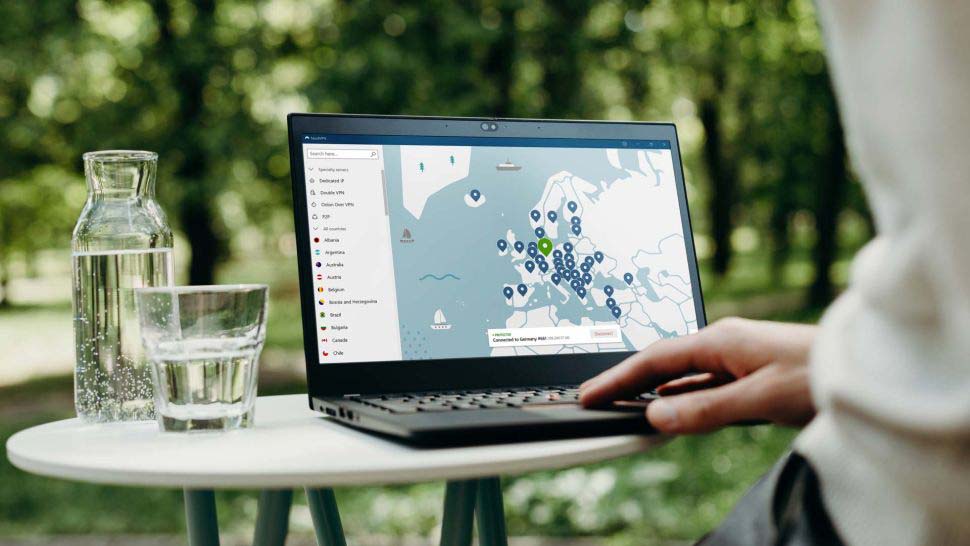NordVPN CEO upends a common assumption about VPN servers: It's "basically not very true."
Ever wondered why VPN companies are so competitive about their server counts? So has NordVPN's CEO, and his company wants to rewrite VPN marketing forever.

Sign up to receive The Snapshot, a free special dispatch from Laptop Mag, in your inbox.
You are now subscribed
Your newsletter sign-up was successful
In the world of virtual private networks (VPNs), company marketing is crucial for customer acquisition. Because the products of different providers are so similar, many VPN companies will do anything and everything to stand out. This includes boasting about the number of servers offered on their VPN network.
But just how important is this figure, and should it be the determining factor in your next purchase decision? VPN juggernaut Nord thinks maybe not.
How we got here
Because VPNs aren’t the most technically complex products to create and maintain, there has been a flood of providers over the years.
In such a crowded field with a low barrier to entry, any metric worth mentioning is likely to be picked up by the marketing department and plastered on the home page or any other available advertising channel.

Historically, these metrics have often been related to things like speeds, server counts, the number of supported devices, and extra features. However, as most of those are easy for each VPN to match against others, the advertising arms race for “bigger number = better” has focused almost entirely on server counts.
Features: 1GB of free eSIM data, secure, high-speed VPN, threat protection, and keep up to 10 devices secured simultaneously.
Why is a high server count good?
In essence, the larger a VPN network is and the more servers it offers, the more likely it is you’ll be able to find one close to your geographical location.
Overall the closer a server is to you, or the larger number of servers you have to choose from in a particular region, the better performance you can expect from the service. This is because each server has a particular load amount, and the more people that are trying to use a single server, the slower the speeds will be.

However, one company, NordVPN, is trying to change this longstanding narrative. In a recent interview with TechRadar, the company’s CEO Marijus Briedies was quoted on the issue, stating, "The idea that the more VPN servers you have, the better you are, is basically not very true. So, we have to start talking about this.”
Briedies argues that server quality, over quantity alone, is more indicative of the experience VPN users can expect. Briedies claims his company caps every server at just 30% load volume, which means more bandwidth is available for each user connected at one time.
That said, in general, if a VPN offers more servers, the more broadly the network can spread those users when connecting in high-traffic areas like Tokyo or New York City. So, in most cases, yes, a bigger number is better in the long run.
What should you look for in your next VPN?
So, what does this all add up to? While server count shouldn’t be the only metric you consider when picking a VPN, it’s still one of the most important, regardless of what a single CEO says.
Looking at everything from price to supported device count, user reviews, and more should give you the best picture of which VPN will best fulfill your needs.
Server counts are an important part of this total package, and while they may be less relevant for users who live in moderately populated areas of the world, anyone in very rural settings or densely packed cities will want to keep server count and quality at the top of their list of considerations when shopping for a new VPN.
More from Laptop Mag
Sign up to receive The Snapshot, a free special dispatch from Laptop Mag, in your inbox.

Chris Stobing grew up in the heart of Silicon Valley and has been involved with technology since the 1990s. Previously at PCMag, I was a hardware analyst benchmarking and reviewing consumer gadgets and PC hardware such as desktop processors, GPUs, monitors, and internal storage.
He's also worked as a freelancer for Gadget Review, VPN.com, and Digital Trends, wading through seas of hardware and software at every turn. In his free time, you’ll find Chris shredding the slopes on his snowboard in the Rocky Mountains where he lives, or using his culinary-degree skills to whip up a dish in the kitchen for friends.

